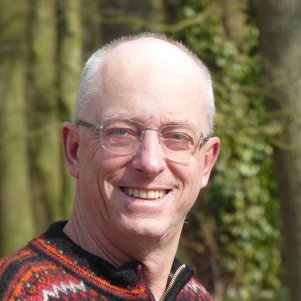7.4 million euros for research into products from wastewater
Showering, cleaning, flushing toilets, and industrial production are all processes that use a great deal of water. But what happens to the waste in the water, to everything that is flushed away and disappears into the sewer system together with the water?
Each year, we produce approximately 30 kg of organic material (biomass) per person that disappears into our wastewater via the sewer system. This organic material is removed from the wastewater and, until now, often incinerated. But what if this wastewater and components from wastewater sludge were to be used as raw materials for new products? The Novo Nordisk Foundation is making a grant of 7.4 million euros available for a large-scale research project named REThiNk. With this project, TU Delft, the University of Aalborg, and the University of Aarhus are taking a major step in the transition to the circular economy.
Recycling wastewater
REThiNk is focused on recovering extracellular polymeric substances (EPS) from wastewater treatment residues as a new circular biopolymer. Recovering biopolymers from wastewater is one of the opportunities available for recycling waste from wastewater. Mark van Loosdrecht, professor in Environmental Biotechnology and water treatment at TU Delft, together with other researchers at TU Delft, will focus on gaining a better understanding of the physical and chemical characteristics of polymers and related microbial production process. The knowledge acquired of polymer characteristics is expected to enable the production of all kinds of new materials that can be used, in particular, in the agricultural, chemical, and construction sectors. Mark van Loosdrecht: ‘Our aim is to utilise everything that is now called waste.’
Composition of polymers
EPS can be considered a kind of gelatin. Not much systematic research has yet been carried out into polymers, as their composition, in comparison to DNA for example, is very complex with an enormous number of variables. The research grant from the Novo Nordisk Foundation is finally making it possible to carry out effective and systematic research into these polymers. ‘Until now, EPS has received relatively little attention; as its analysis is very complex, the only measurements carried out have been rather simplistic and meaningless. In every water treatment facility, bacteria use EPS to immobilise themselves. These polymers have potential value for the bio-based circular economy. In the past years, we have been able to carry out research into the biopolymers present in aerobic particulate sludge. We can now expand this research to activated sludge, the biomass that is produced in a water treatment facility during the treatment process’, explains Mark van Loosdrecht.
Raw material
Activated sludge is a waste product that is currently still being incinerated. In future, in a circular economy, it is expected to serve as a raw material for the production of phosphate and energy for example. The production of biopolymers, in particular, would make it economically feasible to process this sludge into a raw material. In the long term, this could replace the oil-based polymers that are now used in the industry. Examples of potential products include composite materials used in construction or flame-retardant coatings.
Cooperation
The research will be carried out by a team consisting of leading scientists in the area of analysing the polymers, the physical and chemical characteristics of the polymers, and the microbiology of EPS formation (TU Delft), the microbial composition of activated sludge and genetic characterisation and physiology of EPS formation (Aalborg University), and the processing of the polymers and NMR characterisation (Aarhus University). In short, the research is expected to open the door for activated sludge to the global market for biopolymers, to make water treatment facilities more sustainable, and to generate a new, abundant, and inexpensive raw material for the circular economy.
Read the announcement from the Novo Nordisk Foundation about all the applicants who received a grant from the NNF Challenge Programme for 2022 here.

Mark van Loosdrecht
Full professor, Section Leader
- +31 15 2781618
- M.C.M.vanLoosdrecht@tudelft.nl
-
Room: B58. C2.190
